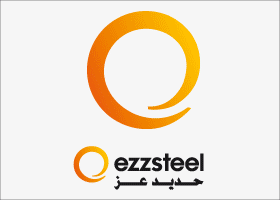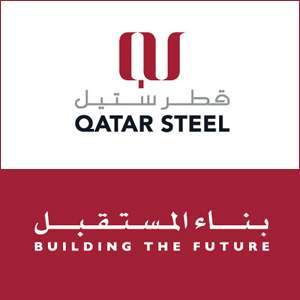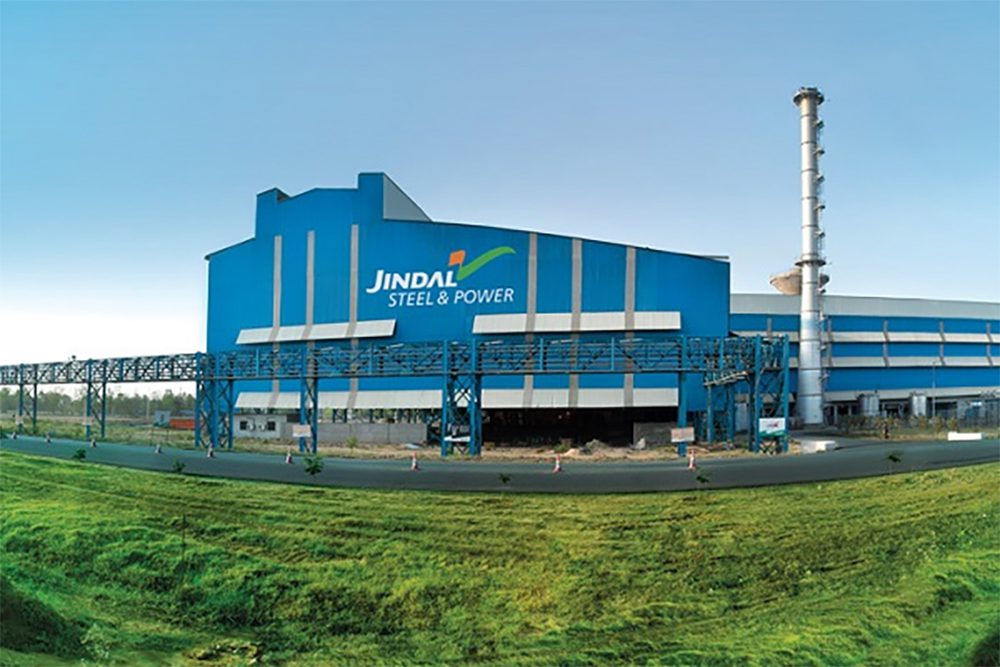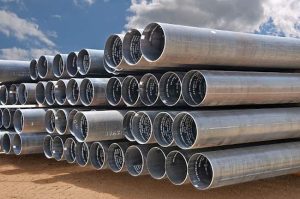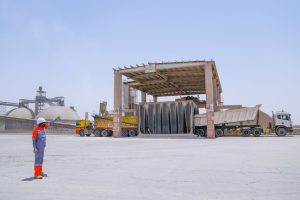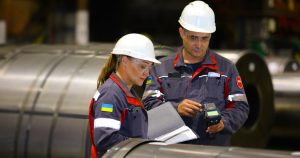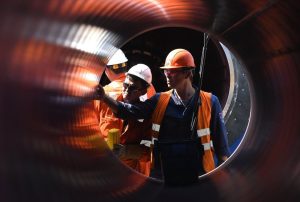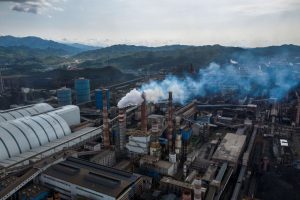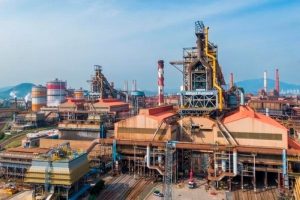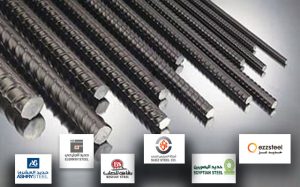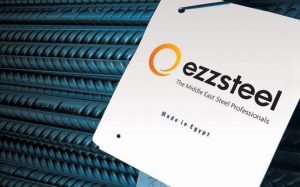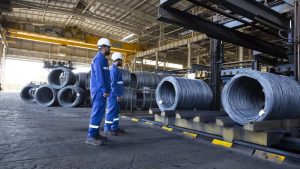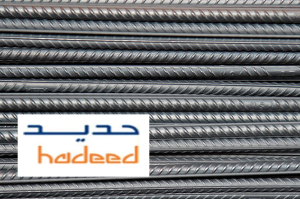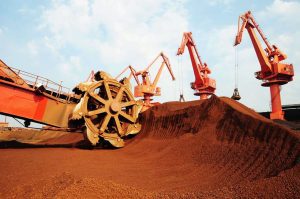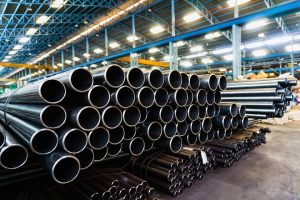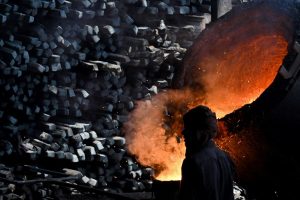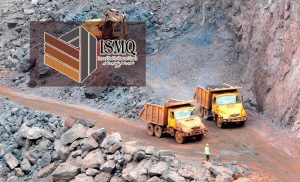Within the framework of its strategy to enhance sustainability, Jindal Shadeed Iron and Steel – the largest producer of iron and steel in the private sector in the Gulf Cooperation Council countries – participated in a series of pioneering initiatives aimed at reducing carbon dioxide emissions resulting from its activities. As these initiatives embody Jindal Shadeed’s commitment to promoting sustainable environment and striving towards developing its activities to become environmentally friendly.
More than 71% of global steel production causes carbon dioxide emissions at a rate of 2.32 tonnes per 1 tonne of steel produced by smelting and oxygen furnaces. Here Jindal Shadeed is among the list of 7% of iron and steel producers who have recorded lower emissions by 30% of the general rate, to record emissions at a rate of 1.57 tonnes for every 1 tonne of production, thus reducing the total annual carbon emissions by 1.68 million tonnes. The ductile iron production unit in Jindal Shadeed is fully prepared to take advantage of green hydrogen technologies to shift towards green steel in the future.
Jindal Shadeed’s initiatives included an experimental unit establishment for carbon capture. Jindal Shadeed began cooperating with a well-known American company to establish a carbon capture unit with a capacity of 7.5 tons per day. After the completion of the pilot phase, the carbon capture unit will be built on a commercial scale. The captured carbon dioxide can be used in various ways, such as converting it into valuable resources such as carbon monoxide or bio-mixed gas, liquefying it for transportation and using it in enhanced oil recovery or storing it underground. This initiative is expected to contribute to removing 700,000 tonnes of carbon dioxide annually upon reaching maximum commercial capacity by 2027.
Jindal Shadeed has also developed a modern technology related to the system for transporting hot cast iron directly to the electric arc furnace, which is the first of its kind in the world. It eliminates the need for compressed air transportation or ship transportation, which translates into a significant reduction in energy consumption, thus reducing CO2 emissions of 220,000 tonnes per annum in the smelter and smelter production unit.
Moreover, Jindal Shadid has implemented measures to improve natural gas consumption through monitoring and continuous consumption improvement. These technologies included increasing the production of hot ingots by operating the reducing iron unit continuously to avoid gas loss during the heating and re-forming stages, using the gas produced from the conversion process as fuel in the transformer, and improving the quality of natural gas. Thus, carbon emissions were reduced by an additional 18,000 tonnes per year.
In the context of reducing energy consumption in operations, Jindal Shadeed has adopted many advanced technologies to improve lighting systems and processes and the installation of capacitors, which resulted in significant savings in total energy consumption. The installation of a gravity feed unit, increased oxygen injection and the use of movable doors in the electric arc furnace further reduced the overall energy consumption.
In the context of enhancing energy efficiency, Jindal Shadeed also focused on electrodes consumption by using advanced technologies such as coating electrodes and continuous cooling them with water to extend their life. These joint efforts have resulted in a significant reduction in carbon dioxide emissions by 45,000 tons annually.
One of the unique advantages of Jindal Shadeed is its strategic location close to the pier, which reduces emissions from logistics activities by approximately 22,000 tonnes of carbon dioxide annually.
The strategy to enhance environmental sustainability comes as part of the efforts exerted to build a more prosperous future as these launched initiatives will contribute to reducing carbon emissions by 325,000 tonnes annually while reaching a leading rate in the steel industry at 1.03 tonnes of carbon dioxide emissions per 1 tonne of production. Thus, Jindal Shadeed continues to set new standards in the iron and steel industry in the region.
Commenting on these initiatives, Harsha Shetty, CEO of Jindal Shadeed Iron and Steel, said: “These initiatives underscore our unwavering commitment to environmental responsibility by employing the latest technologies and adopting sustainable best practices. We are also proud, in Jindal Shadeed, of leading the process of reducing carbon emissions in the iron and steel sector at the regional level, in line with Oman’s Vision 2040 and the Sultanate’s commitment to reach carbon neutrality in 2050.
He added, “As we celebrate World Environment Day, we reaffirm our unlimited commitment to building a safe and sustainable future in the Sultanate of Oman, as we are fully aware that addressing climate change requires bold steps and innovative initiatives. Moreover, we are proud to be at the forefront of iron and steel factories that offer such innovative solutions to reduce its carbon footprint. We are confident that these efforts will contribute to enhancing our environmental performance while maintaining our leadership in the iron and steel industry market in the region”.
Harsha Shetty concluded his speech by saying: “We strongly believe in the need to communicate transparently with the public and share our achievements in reducing carbon emissions. Through these efforts and the relentless pursuit of innovative solutions for sustainability, we aim to set new standards in the iron and steel industry, which shows our commitment to building a more sustainable future and motivating others to join this march towards a greener future”.




